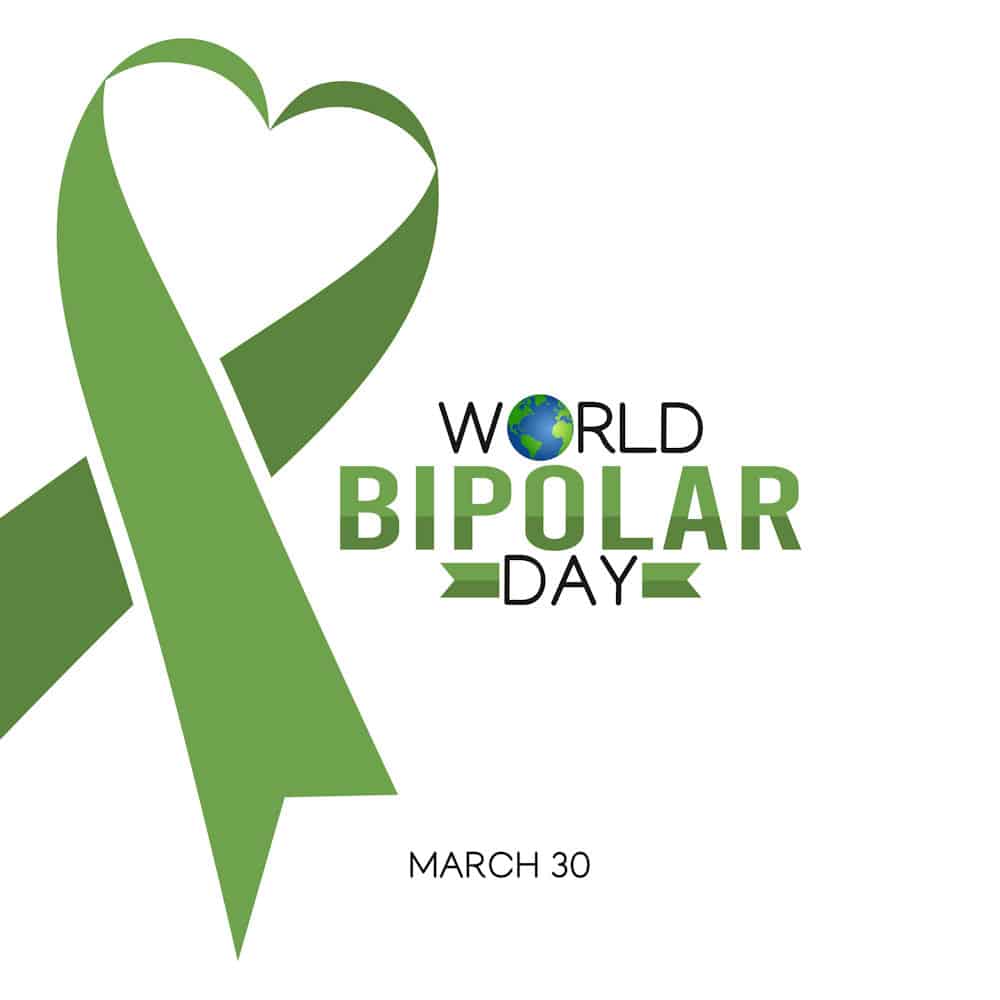
Villa Kali Ma Helps Women with Bipolar Disorder
At Villa Kali Ma, we help women with mental health struggles recover lives of meaning and freedom. When trauma and addiction are a factor too, we help address all three things.
We support women to heal using a combination of the Western scientific medical model and alternative, holistic modalities like Ayurveda, yoga, and breathwork. We are fully equipped with the latest in cutting-edge trauma treatments, methods like EMDR, Somatic Experiencing, and brainspotting, to help each woman unravel the imprints of the past and get a fresh start at living.
Our facilities are dedicated to women who are currently under the thumb of addiction, trauma, or some variant of psychological disorder. We guide each woman we treat to ignite the fire of self-love in her heart, so that she can find the strength to undergo the transformations that are necessary when any of us want to experience deeper happiness and connection.
What is Bipolar Disorder?

Bipolar disorder is the label given to a specific kind of experience had by a portion of the population. Bipolar is a notoriously painful condition that’s associated with a heavy load of mental and emotional suffering. It is also noted for being linked to people with very bright gifts of creativity, invention, and vision.
Bipolar disorder used to be called manic-depressive disorder. It is the umbrella term for a group of psychological conditions entered in the Diagnostic and Statistical Manual of Mental Disorders, Fifth Edition (DSM-5).
There are three types of bipolar disorder listed in the manual: Bipolar I, Bipolar II, and Cyclothymia.
Bipolar disorders feature manic episodes or periods of amplified energy. The eventual mood crashes following a manic episode are called depressive episodes. As the name suggests, people with bipolar disorder experience both ends of the pole – extremely elevated moods and extremely low moods.
The different kinds of bipolar disorder are distinguished by how intense the manic episodes are.
Bipolar I may be diagnosed when someone experiences an extreme manic phase lasting for at least one week. A depressive episode may or may not follow, but the mania could be so acute that the person ends up in the hospital.
Bipolar II is diagnosed when someone has a hypomanic episode of several consecutive days, paired with a very serious depressive episode. Hypomania is like mania, but not as pronounced or dramatic.
Cyclothymic Disorder is diagnosed for people experiencing recurring mood shifts between hypomania and depression over a minimum of two years.
What are the Symptoms of Bipolar Disorder?
What is unique about bipolar disorder, among all the mental health disorders, is the presence of mania.
Mania is an extremely elevated mood, or feeling “up”, with high energy and intensity. During times of mania, we can have a lot of inspiration and ideas and may speak very quickly or feel we can’t keep up with the influx of energy into our minds. We may have a lot to say on many different topics and feel a need to speak rapidly in a ceaseless verbal outpouring, to try to capture or express all we are witnessing in our thoughts.
We also will likely behave impulsively, becoming more reckless, and doing things we wouldn’t normally do if we felt calm and grounded. We may take actions that are dangerous because we are experiencing unusual levels of optimism.
Mania is usually coupled with grandiose thoughts and fantasies about our abilities, as though our egos have suddenly inflated, and we can lose touch with reality and the limits of our human bodies.
It’s important to understand that all human beings experience ups and downs in our energy, inflations, and deflations of our self-image, and rises and falls in our moods. For people who have mania to a disordered degree, though, it can be quite dangerous for them. Spending sprees, gambling, sudden big life decisions, acting inappropriately at work, drugs and alcohol, and risky sexual behavior often go along with a period of mania.
It is a key part of the bipolar experience to suffer intensely during the depressive stage of the cycle, when all that went up, comes down again. The plummeting energy and mood, along with the loss of good feelings about oneself and one’s abilities, is devastating and rough to endure. Suicide is a lure in these times, against which our bipolar loved ones need to be protected, as the depths of darkness are truly harrowing.
7 Reasons Bipolar Day is Important

Every year on March 30th, World Bipolar Day is honored, as a way to raise awareness about the needs of people with bipolar disorder. By expanding our collective understanding of what bipolar disorder is and how it is experienced from within, we can help sufferers and loved ones get the support they need.
Here at Villa Kali Ma, as always, we have a holistic way of thinking about how we can enfold, heal, and celebrate the women among us who have these traits and patterns. We want every woman with bipolar patterning to know of our deep, fond compassion and our willingness to share in the experiences and burdens these brave women carry for the collective.
Here are our thoughts, on why an annual day of reflection on bipolar disorder may be a good practice for us all.
1.Compassion
Compassion is healing. Compassion gently erodes the build-up in the heart that keeps us in separate streams of life, not touching each other’s experiences.
For the person who has compassion in her heart and the person who is able to be lovingly seen, understood, and accepted, compassion is a boon. Compassion dissolves the walls of separation. People with bipolar disorder stir my compassion, what about yours?
2.Understanding the Bipolar in us All
We are all mirrors of each other. We are made in different forms, with different purposes and missions here on earth, and no one is completely the same as another. Still, what we carry, we carry for all.
People who carry the bipolar experience are doing so on our behalf. Rather than turn away from suffering that is hard for us to bear, let us stay connected, stay present, and see the bipolar in our own nature as well.
Don’t we all move through life on a path with peaks and valleys? Don’t we all know the burning intensity of the light and the chill of a deep shadow falling on the soul? We are all part of the whole, and when we embrace those who seem to be on the extreme edges of human experience, all benefit from the reunion.
3.Heal our Bipolar Collective
As a collective psyche, we are clearly disordered. We are split into factions, sections of privilege or pain. The light and the shade duel in our body politic, in our species, in our cultural identities. We are pressured by the booms and busts, inflations of fancied superiority, and the heavy pains of being made to be less than.
Why? And how can we, as a group, soften the extremes, come into balance, come to the center place that seeks no overpowering nor fears the soft underbelly? In remembering we are all, all sides, all things, and all qualities, we can unite the polarities of our collective.
4.Save lives
People with bipolar disorder are at a higher risk of suicide. The tragedy of suicide hurts the tissues of human connection for generations, and we need to do everything we can to prevent it! Through greater awareness and understanding that some of us humans will feel that dark call, we can help hold each other safe.
Each person considering suicide has fallen prey to the illusion that their individual life doesn’t matter to the rest of life, but it does. We can help such a person remember that she is our kin, kin to all of life, and needed by all. We can help them feel less alone, and understand that we are willing to share in the pain they feel is theirs alone.
5.Reduce Stigma and Marginalization of the Mentally Ill Among Us
The stigma around mental illness is supremely unfair and widespread. How is it that people who are already suffering more intensely than the rest of us, also have to be blamed, scapegoated, pathologized, misunderstood, and treated as a problem that should go away?
It is incredibly cruel to marginalize those whose suffering makes them feel alone and unworthy, already. Let’s just stop that, and instead get on board with loving all humans as we are right now. It will be uncomfortable for us some of the time, yes, as it is for them almost all of the time.
6.Acknowledge Pain
Many people just don’t know what it’s like to suffer as intensely and unremittingly as people with bipolar disorder often do. Without the experience, it’s easy to judge or not engage.
Let’s raise awareness and understanding, to bring the truth of the presence of pain in our world out into the light.
We as a collective species clearly need to change our ways, yet we will never change in the ways that would truly help our world evolve if we deny the presence of pain.
Pain is the call to heal. Through pain, we find out what’s wrong that hurts all of us, where we have erred, where we left nature, and what we need to do to return.
7.Celebrate the Bright Fires Among Us
Let’s remember to see and say thank you for the gifts brought by those who live with intensity, passion, and pain.
Not only when they bring creative gifts into the world, but also through their insights, the transformation, and deepening of the collective consciousness, our brothers and sisters with bipolar disorder burn bright, warming and illuminating all of us with their fire.

